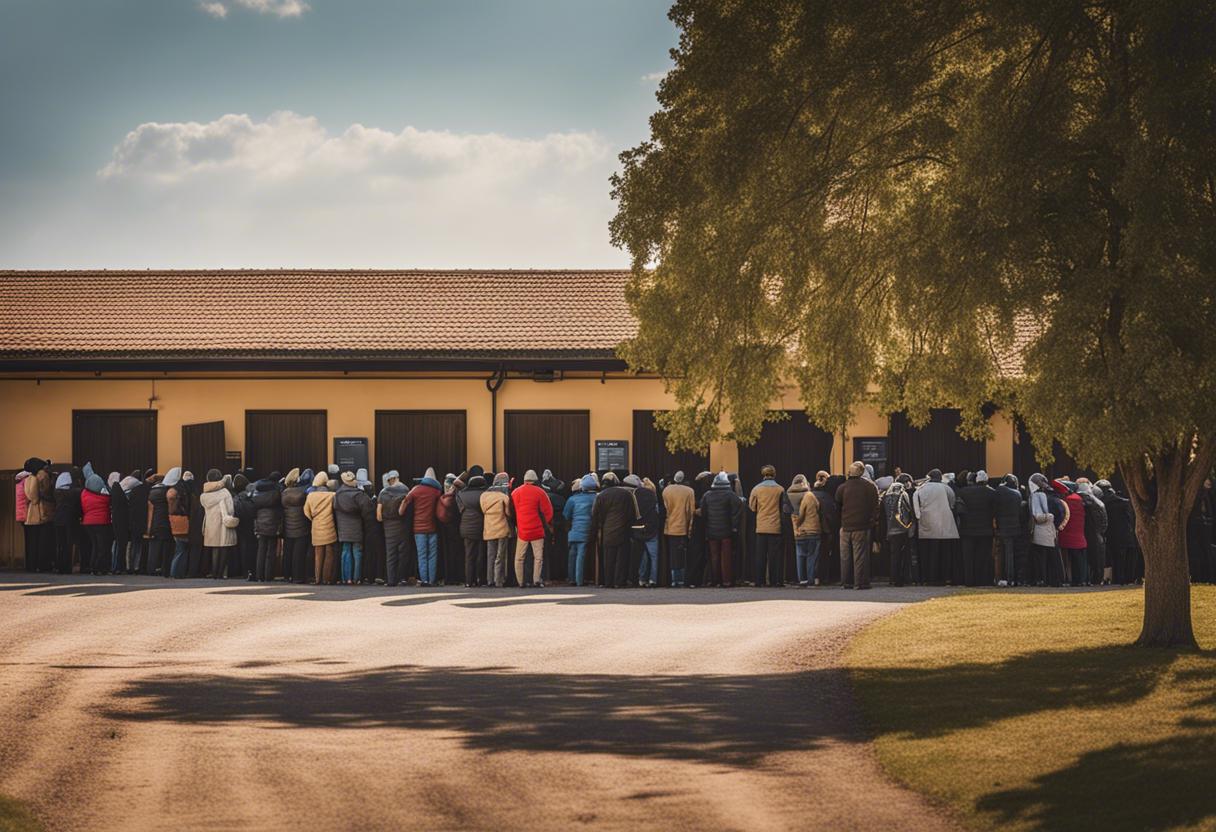The landscape of the 2024 elections is slowly being painted as more than half the local seats have been allotted; yet, our eyes have yet to bear witness to a European recount. Recognising the volatility of our electoral system, we must acknowledge that the overall outlook may still fluctuate. As such, there are five key observations we’ve discerned from the election progress over the course of Sunday.
The Immigration Debate:
The number of anti-immigration candidates gaining seats is unexpectedly low, providing a sense of relief to some sectors, particularly as this number is significantly less than the number that ran in elections throughout the nation. This can be viewed from a variety of perspectives. Many might feel relief that there won’t be a far-right stronghold over councils, whereas, perception from another standpoint may suggest that the issues of immigration have surfaced on the electoral landscape like never before, garnering a vast number of votes. Following the election result, several far-right factions underperforming in local elections initiated the spread of unproven election fraud allegations.
Whether issues surrounding immigration policies, a potent topic across Europe, will crescendo and then diminish, or if they signify a transitory turning point in Irish politics, is yet to be discovered. However, there is no doubt that we have ventured into unexplored political terrain.
Sinn Féin’s Underwhelming Performance:
In an unexpected turn of events, the party drastically fell short of anticipated results, polls and likely, their own worst-case predictions. While Mary Lou McDonald attempted to present a strong front at the RDS, assuring renewed vigour and attention to the minutiae of their policy platform, the party is faced with the alarming disconnect between its housing policy criticism and its polling results.
The question that lingers is, what’s the next course of action?
Is there time for a messaging makeover? Should there be? Or should the belief be kept unwavering, while taking note of the 2019 resurgence that happened the following year? These questions will now multiply where there was once certainty. As the first results from Europe come into focus on Sunday night, predictions have been made about widespread pressure in all the three European constituencies. It would prove difficult to convincingly argue that at least two MEP seats won’t be secured, though even this can be seen as falling short of expected targets. Its performance in local elections as late as Friday would have been equally hard to anticipate. Circumstances can always take a turn for the worse.
Centre-left retains its position
This is particularly prominent in Dublin, where both the Social Democrats and Labour have had a successful day. The former is expected to be let down by its European performance but there’s a silver lining for them in West Cork. It looks set to secure two seats in Holly Cairns’ hometown. Roughly half of the local level seats are predicted to go out of Green’s hands, according to party strategists.
The party makes a plausible excuse given the fate of smaller partners from earlier coalitions during midterm elections. But a lot of the party’s future is pinned on what happens with Ciarán Cuffe in Dublin. The same could be said for Aodhán Ó Ríordáin, whose fight is for the same seat. However, this party already seems to be inspired by the campaign in a way that has been missing for the past ten years.
General election anticipation
Is it the lack of substantial news coming out of Europe, or is it just the excessive excitement in the Fine Gael party? The steady rhythm of general election gossip is in the air. Even senior ministers who oppose an early election are privately admitting that the winds of change may be headed in that direction. Taoiseach Simon Harris downplayed it, but the change in pace is unavoidable and this will be the main way people interpret politics in the forthcoming months.
Don’t exaggerate.
Despite the gripping nature of this election, we need to pause before rushing to interpret the results. The voter turnout accounted for only about half of the total electorate. Moreover, it’s important to remember that general elections are a special breed. Individuals often narrow their focus down on nationwide issues and policies that will directly affect them, something that doesn’t generally drive local and European elections. The election campaigns are highly dynamic, harkening back to the pension debate of 2020.
As for the European aspect, it seems like a bit of an evasion mainly because we don’t have significant knowledge about the MEP races from Sunday thus far. The attempt to maintain a consistent count in Dublin fell short in the early stages and there appears to be minimal substantial data emerging from South Ireland or North West Midlands. While elections have been occurring all day at local levels, the lack of data or counts means the only surpluses in Europe are the excessive amount of hot takes circulating in the count center.
The situation is likely to shift from 10pm when a Dublin count is forecasted, with the expectation for the count to carry on through the night. When the counts from the other constituencies will be available is less predictable. The safest assumption at this point is that the concluding seats in all three constituencies will be hotly contested.

